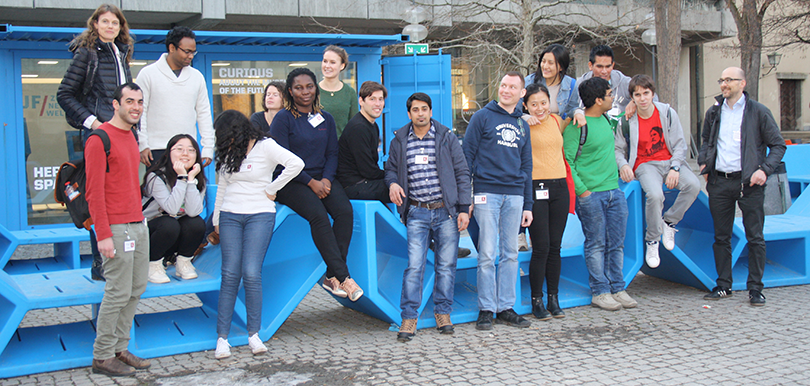Deutsches Museum: Climate research students survey visitors' preferences
13 March 2017, by CEN Universität Hamburg

Photo: Deutsches Museum/Kramer
During a field trip to the Deutsches Museum (German Museum) in Munich, Master’s students from SICSS asked visitors for their thoughts on the different exhibits.
During a field trip to the Deutsches Museum (German Museum) in Munich, Masters students from Universität Hamburg’s School of Integrated Climate System Sciences (SICSS) graduate school asked visitors for their thoughts on the different exhibits. The survey was part of the seminar “Introduction to Social Sciences Methods,” in which students are familiarized with various research methods commonly used in the social sciences. An analysis of the results shows that the astronomy exhibit was the clear favorite, across all age groups and for both sexes. “Interestingly enough, the number-two choice for female visitors was the mining exhibit, whereas the males surveyed were more impressed by the history of the aviation exhibit,” says Meike Schickhoff, a Masters student at the SICSS.
In the course of the field trip, the Hamburg students also discussed current climate- and ocean-related issues with students from a secondary school in Munich in the “Forum for Young Researchers.”
“In the public perception, climate researchers are out tromping through the polar ice in thick snowsuits, or staring at the monitors of gigantic supercomputers, trying to predict the future climate,” says Prof. Dr. Michael Brüggemann, a communications researcher at Universität Hamburg and, together with Prof. Dr. Simone Rödder, one of the two field-trip organizers. “In fact, climate research is part of our society and can only be pursued in specific social contexts. In the USA we are now seeing what can happen when politicians no longer support climate research: researchers are worried about losing their access to vital data, while NASA’s climate research activities might soon be mothballed. So if we want to understand society and people’s reactions to climate change, we also need climate research that integrates the social sciences. That is why we combine the natural and social sciences for truly interdisciplinary research at the SICSS graduate school.”
The field trip was made possible by financial support provided in the context of the Federal Ministry of Education and Research’s Science Year 2016*17 “Seas and Oceans.”
Graduate School of Integrated Climate System Sciences (SICCS)
